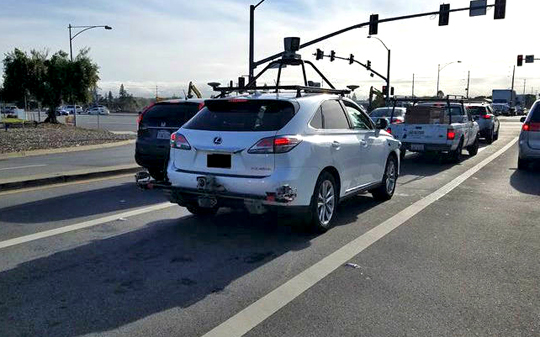Apr 28: Tech giant Apple has wasted no time in entering the self-driving car technology sector with what it calls 'Project Titan.' Soon after securing permission to test its self-driving cars on the roads of California, the Cupertino-giant is out on the road testing the vehicle.

The good chaps at Bloomberg have got lucky and captured what are probably the first images of Apple's self-driving car in the Silicon Valley. The tech-giant is believed to be testing its self-driving technology using a Lexus RX450h. The SUV was spotted near the Apple facility in Silicon Valley kitted with sensors.
Earlier, it was rumoured that Apple would develop its own autonomous car, but the focus is said to have shifted to self-driving car technology before plunging into production from the scratch. A couple of weeks back, Apple had received clearance from California Department of Motor to test its self driving car technology in three vehicles.
There is no information as of now on the timeframe for Apple's new car technology. In fact, we don't even know what the Project Titan is all about. Apple is just another name in the race for developing autonomous cars as there are several other start-ups and tech connoisseurs in the market testing their self-driving cars. But it would be interesting to know what is cooking behind the closed doors of Apple and how it will pan out.





Comments
Add new comment